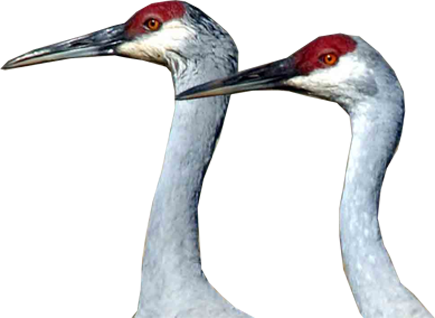Instrumental JV Founder Recognized with Top Award
Brad Bortner has been a champion for migratory bird conservation in the West for the entire existence of the Intermountain West Joint Venture (IWJV). He has been a leader in the wildlife conservation business for over 30 years and is highly respected throughout the profession. From his early days of research on tundra swans in North Carolina to his current position as Chief of the Division of Migratory Bird Management for the U.S. Fish and Wildlife Service (FWS) in Washington, D.C, Bortner’s trademark has been a fierce commitment to linking wildlife populations and habitat conservation in a science-driven, pragmatic manner with robust public-private partnerships. Such dedication makes him more than worthy of the IWJV most prestigious recognition, the John E. Nagel Award.
Bortner was at the heart of formation of the IWJV as a catalyst for the report, Concept Plan for the Preservation of Wetland Habitat of the Intermountain West, by the FWS in 1992. This seminal publication issued a call for wetlands conservation in a vast and largely unpopulated region that was important to waterfowl, shorebirds, and waterbirds but had been overlooked in wildlife conservation circles. The Concept Plan was the biological underpinning of the IWJV and Bortner was one of a handful of visionary leaders that subsequently forged development of its Management Board in 1994.
“Brad Bortner has been a visionary leader for the IWJV since its inception,” said Dave Smith, IWJV Coordinator, at the Spring 2014 IWJV Management Board meeting. “He championed the need for a strong technical foundation to the JV’s work but also brought an incredibly pragmatic understanding of people and partnerships.”
Bortner helped the Management Board make sound operational decisions and conservation investments throughout his lengthy tenure. Specifically, he played an instrumental role in helping the IWJV build the science capacity to implement its current business model of Strategic Habitat Conservation. He served as Technical Committee Chair from 2007-2009 and provided important guidance to the Management Board as it took steps to strengthen its science foundation.
In 2009, Bortner assumed the key role as Chair of the IWJV Management Board. He was truly the right person for the job, as the IWJV entered this phase of its evolution. He expertly guided its transition to landscape-level conservation planning, resulting in decision-support tools and outcome-based evaluations of JV commitment to wetlands and sagebrush conservation. Likewise, Bortner was the “voice” of the Management Board for continually re-doubling the IWJV’s efforts to engage its state-level working groups, State Conservation Partnerships (SCPs), and enhance communication between the SCPs, staff, and the Management Board.
His vision is now in full operation at so many levels of IWJV operations and will help drive the IWJV’s work into the future. Bortner’s vision for migratory bird conservation in this unique region and his innate sense of how to get strategic habitat conservation on the ground distinguishes him from many stellar wildlife conservationists that have plied their trade in the Intermountain West.
“This JV wasn’t just my vision,” Bortner said. “It was a collective vision that continues to grow and change. I look at what we have done and it’s exciting to look at the past but even more exciting to look to the future.”

From left to right: Miles Moretti (CEO Mule Deer Foundation), Brad Bortner (Chief of the Division of Migratory Bird Management, USFWS) and Dave Smith (IWJV Coordinator).

